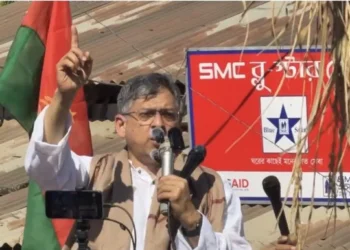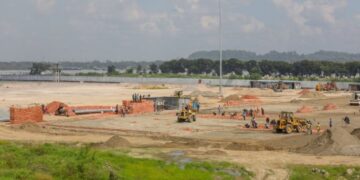The government has passed a revised ordinance to abolish the National Board of Revenue (NBR) and replace it with two new divisions – the Revenue Policy Division and the Revenue Management Division. The amendment ensures that at least one of the divisions will be headed by officials from the former NBR, which has restored some satisfaction among revenue officials who had been protesting since May.
New Ordinance Passed by Advisory Council
On Thursday, 21 August, the Advisory Council approved a revised ordinance that formally dissolves the National Board of Revenue (NBR). In its place, two separate bodies are being created:
-
Revenue Policy Division
-
Revenue Management Division
Changes Made in the Revised Ordinance
The amendment specifies how the heads of the two new divisions will be appointed.
-
For the Revenue Management Division, the head will be chosen from officials with experience in revenue collection. This effectively opens the door for current NBR officials to take the leadership role.
-
For the Revenue Policy Division, the government may appoint someone from NBR or from any other department, provided they have expertise in macroeconomics, trade policy, planning, revenue policy, or management.
Read More: Bangladesh Cricket Board Brings Back Award Night After Nearly Two Decades
Officials See Their Movement as Justified
Revenue officials had been worried that the initial ordinance favored administration cadre officials, limiting their chance to lead the new divisions.
One amendment now ensures that NBR officials can become head of the Revenue Management Division. Because of this, officials believe their protests have been justified.
They said:
“At least one of the divisions will be headed by NBR officials, which proves that their movement was justified.”
Previous Concerns and Protests
When the first ordinance was issued in May, many NBR officials were upset because it seemed to give more power to administration cadre officers.
Their complaints were:
“The ordinance was designed in a way that would give administration cadre officers the authority to lead both divisions, restricting revenue officials from reaching top positions.”
As a result, officials began a protest movement in mid-May. By the end of June, they even announced programs that could shut down ports, forcing the government to take a strong stance.
Government’s Strong Reaction
In response to the protests, the government took disciplinary actions:
-
36 officials were temporarily suspended
-
5 officials were forced into retirement
-
Around 400 officials were transferred
Current Situation
The revised ordinance has brought some relief to the protesting officials. They now feel their concerns have been partly addressed, especially with the guarantee that one of the two divisions will be led by someone from their own ranks.
Source: TBS

















